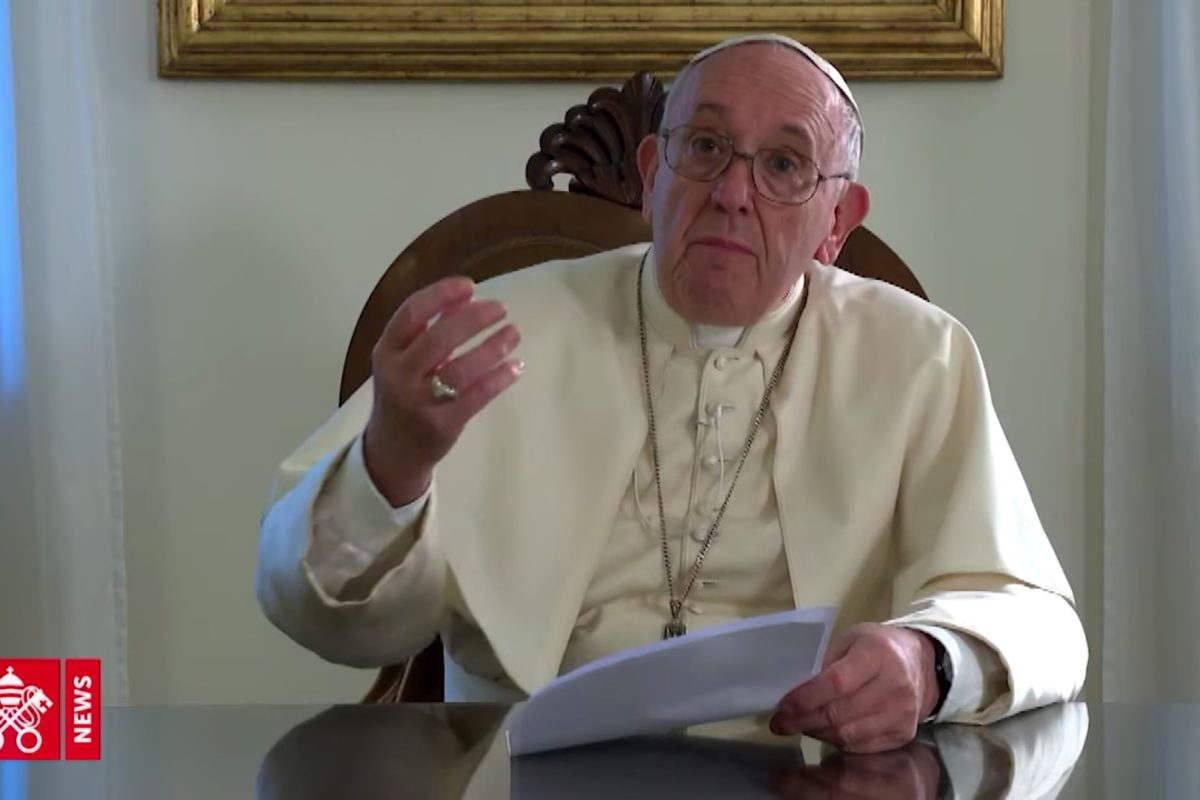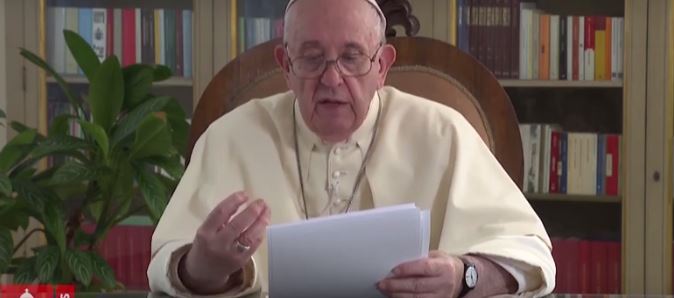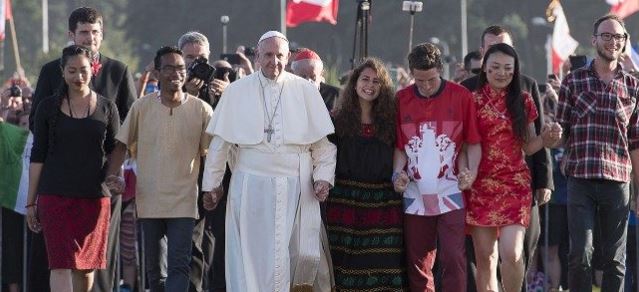
A new educational alliance is emerging in the «Global Education Pact» unveiled virtually by the Pope on Thursday 15 October. The Holy Father presented in a video message the seven transversal points: dignity of the person, listening to children, generalisation of the instruction of little girls, importance of the family, education to welcome, other apprehension of the economic and political stakes, and safeguarding of Creation..
Starting from the consequences of the lockdown in the world of education, Pope Francis makes an unambiguous observation. “Covid has accelerated and amplified many of the emergencies we face and has revealed many more. Education systems around the world have suffered from the pandemic at both school and academic levels.
The lock down, a catastrophe in education
According to the Holy Father in fact, the computerised educational platforms used during the confinements of both sides ‘Not only did a large disparity in educational and technological opportunities emerge, and many children and adolescents have been left behind in the natural process of educational development. ‘
An «educational catastrophe»: 10 million children who could be forced to drop out of school because of the coronavirus economic crisis, according to data from international agencies.
«The transforming power of education»
The Pope believes that a global crisis must be accompanied by «a new cultural model».
“Education,” the Pope said, “is meant to be transformative.” It should present a hope that can shatter the determinism and fatalism of the selfishness of the strong. It should shatter the conformism of the weak and the ideology of the utopians as the only way forward.
To educate is always an act of hope, the Pope said, adding, it should open up new horizons in which hospitality, intergenerational solidarity and the value of transcendence give birth to a new culture.
This hope should be grounded in solidarity, the Pope stressed, saying the education process should help respond to today’s challenges and problems and find solutions to the needs of every generation. This will help contribute to the flourishing of humanity now and in the future.
Education against selfishness, indifference
“Education is one of the most effective ways to humanize the world and history,” said the Holy Father.
It is above all a question of love and responsibility that is transmitted over time, from generation to generation. Education is proposed as the natural antidote to individualistic culture, which sometimes degenerates into a true cult of the “self” and a primacy of indifference. Our future cannot be the division, the impoverishment of the faculties of thought and imagination, of listening, of dialogue and of mutual understanding. ‘
For this, the Pope calls for a new era of educational commitment.

A bold pact for civil society
« We believe that the time has come to conclude a comprehensive educational pact for and with the young generations, which involves families, communities, schools and universities, institutions, religions, governments, the whole of humanity, in the formation of mature people”.
It is therefore a question of having «the necessary audacity» to overcome the excessive simplifications veneered on the usefulness, the result (standardized), the functionality and the bureaucracy that confuse education and instruction and end up atomizing our cultures, also noted the Successor of Peter in his video message.
On form and manner, the Pope insists on «an integral, participatory and polyhedral culture».
It is thus addressed to all fields, « To the men and women of culture, science and sport, to the artists, to the operators of the media, so that they too may subscribe to this pact and, through their witness and their work, may they become promoters of the values of care, peace, justice, good and beauty, welcoming others and fraternity». A strong appeal to civil society, because we should not expect everything from our leaders; it would be childish. We have a space of co-responsibility to be able to start and generate new processes and transformations» (Encyclical Fratelli Tutti).
The seven points of the pact
The objective is this «capacity to make harmony», to form a «civilisation of harmony», «of unity, where there is no place for this bad pandemic that is the culture of waste». The Argentine Supreme Pontiff finally concluded his video message, hammering out «that the great transformations are not built in offices and cabinets», but that there is an «architecture of peace», in which the various institutions and persons of a society intervene, “each according to its jurisdiction but not excluding any person”.
 The seven commitment points of the Global Education Pact:
The seven commitment points of the Global Education Pact:
– To place the person, his or her value and dignity at the centre of every educational process, in order to make his or her specificity, beauty, uniqueness and, at the same time, his or her capacity to be in relation with others and with the reality that surrounds him or her, by rejecting lifestyles that promote the spread of the culture of rejection.
– Listen to children and youth
– Fostering the full participation of girls in education
– See the family the first and indispensable subject of education
– Educate and educate ourselves to welcome, opening ourselves up to the most vulnerable and marginalized
– To engage in the search for other ways of understanding the economy, of understanding politics, of understanding growth and progress, so that they may truly be at the service of man and of the entire human family in the perspective of an integral ecology;
– Safeguard and cultivate our common home, protecting it from the exploitation of its resources, adopting more sober lifestyles and aiming at the complete use of renewable energies, respectful of the human and natural environment, according to the principles of subsidiarity, solidarity, and the circular economy.
The response of UNESCO
Following the video message of Pope Francis, the Director-General of UNESCO, Audrey Azoulay supported his remarks, recalling some data. 1.6 billion students worldwide have been deprived of their classrooms since the outbreak of the pandemic. ‘40% of the least-favoured countries that have not been able to deploy specific mechanisms for the continuity of learning’. The need for a new agenda, for a new commitment of the whole society to education is necessary. “A Covenant called for by His Holiness, which considers education in all its global, shared and integral scope, is destined to be at the heart of this refoundation,” she said.



